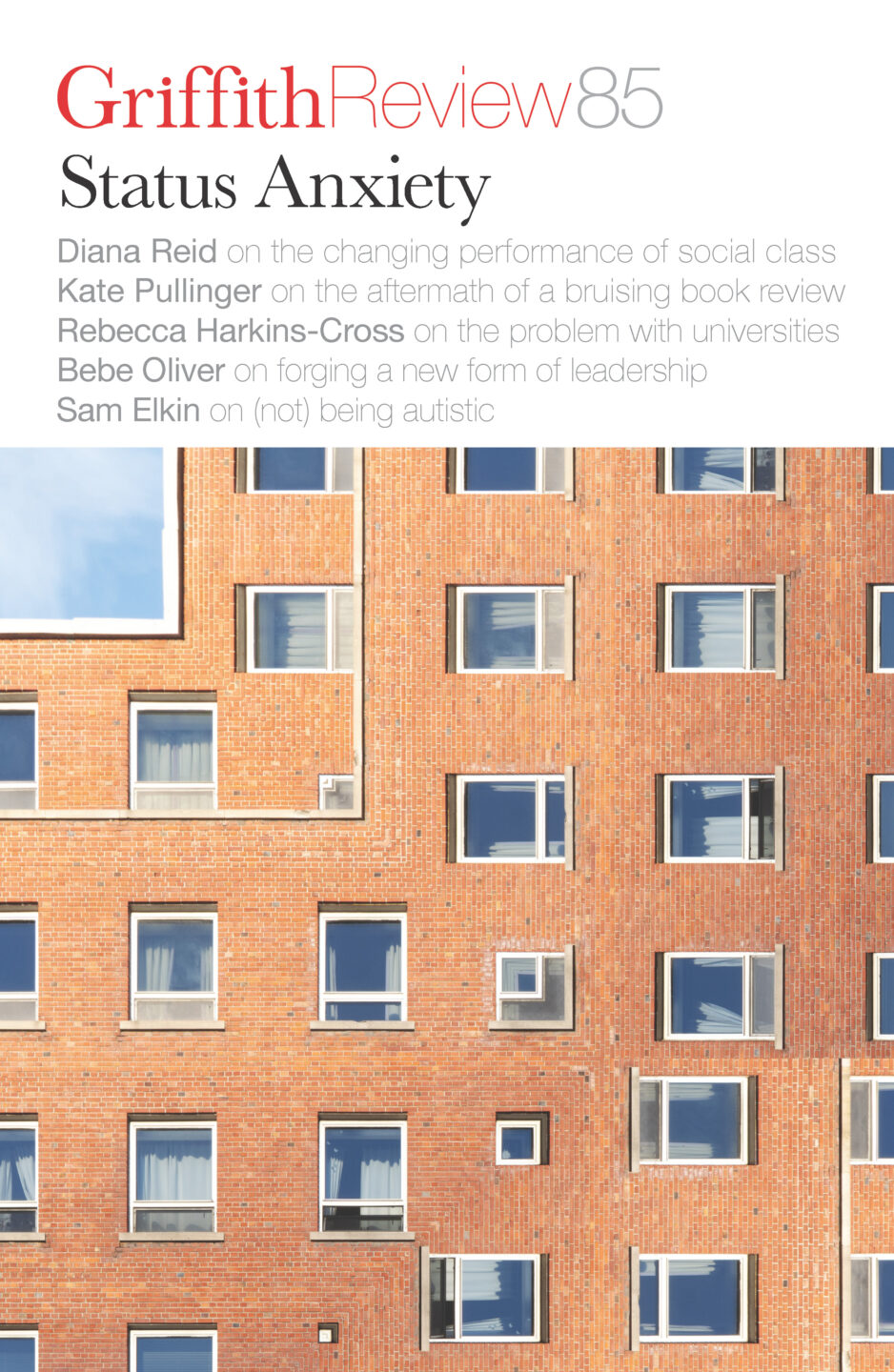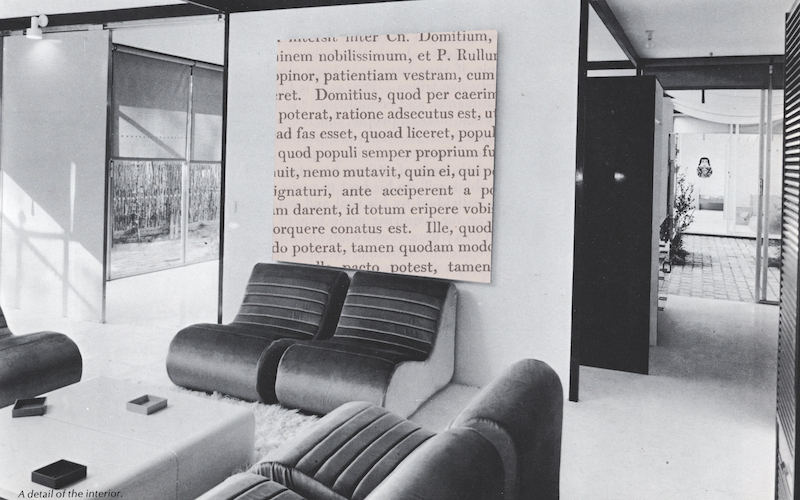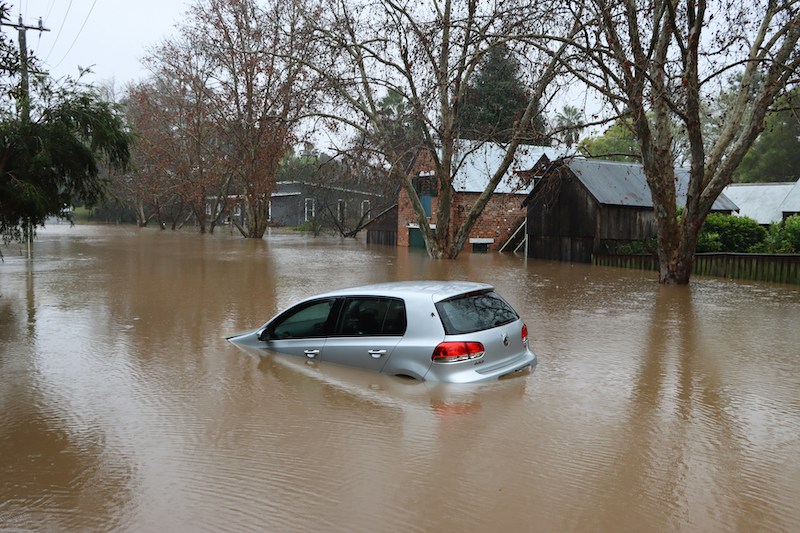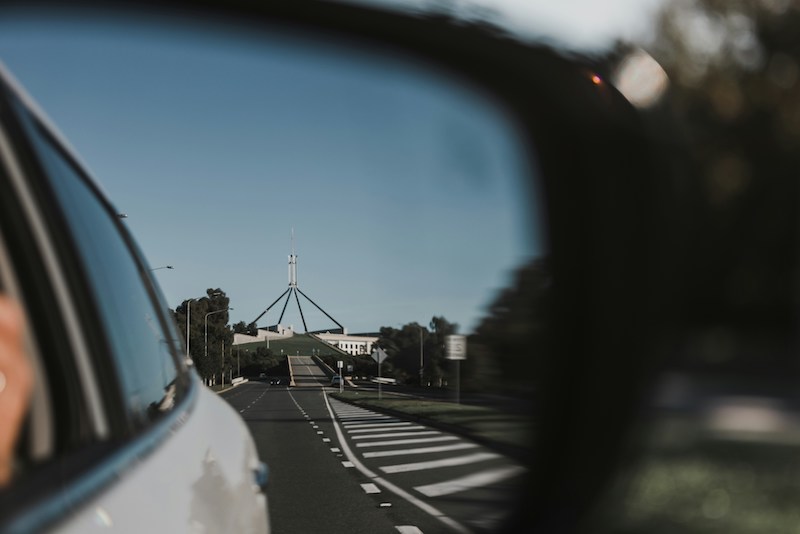Put your house in order
Possession, assembly and the art of collage
Featured in

- Published 20240806
- ISBN: 978-1-922212-98-6
- Extent: 216pp
- Paperback, ePUB, PDF


Already a subscriber? Sign in here
If you are an educator or student wishing to access content for study purposes please contact us at griffithreview@griffith.edu.au
Share article
About the author

Pascalle Burton
Pascalle Burton is a Meanjin-based experimental poet and performer with an interest in conceptual art and cultural theory. Her collection About the Author Is...
More from this edition

Birthmarks
Non-fictionThere’s no denying the pride and glory that comes with being born Aboriginal and knowing it, along with knowing the history of my culture. Yet with this comes a weight, attached by invisible rope tied by the hands of colonial settlers. Aboriginal people live with the death and damage our ancestors have experienced since 1788, while trying to outweigh it with the strength we inherit from the 2,000 generations that came before us. Cultural integrity is one of many facets of Aboriginal identity, and a testament to our reclamation of social governance led by our own communities. Aboriginal people recognise the power and impact lore and values have on the body and mind, and the life elements between, and this fuels our fire to design structures that allow our knowledge and history to be at the forefront of the services our people receive. Certainly, this powered my need to be working within the community, to acknowledge and understand the strength we find in the face of difficulty and push it into the valleys of my physical form as an Aboriginal creative.

Uninsurable nation
Non-fiction AS I DRIVE into the small Victorian riverside town of Rochester, a banner tied to a metal fence greets me on the main road....

Into the void
Non-fictionThe singular achievement of mass politics was allowing otherwise powerless individuals a greater say in how society was ruled. It gave ordinary people the kind of status that hitherto they could hardly imagine. Its withering away, therefore, has allowed those in society whose status has always been higher to assert their interests more fully. Business and the wealthy are no longer forced to make big compromises to accommodate the interests of those below them in the social pecking order. For example, trade and financial liberalisation policies have permitted many companies to shift production, and even some services, offshore to capitalise on lower labour costs, weakening unions’ bargaining power considerably. Many lower paid workers have been pushed into insecure, low-paid jobs with poor conditions, a transformation justified by political and economic elites as contributing to greater economic ‘efficiency’ and labour market ‘flexibility’. Owners thus pocket a greater share of the economic pie, while workers’ incomes often stagnate or even decline in real terms, causing wealth inequality to rise steeply...